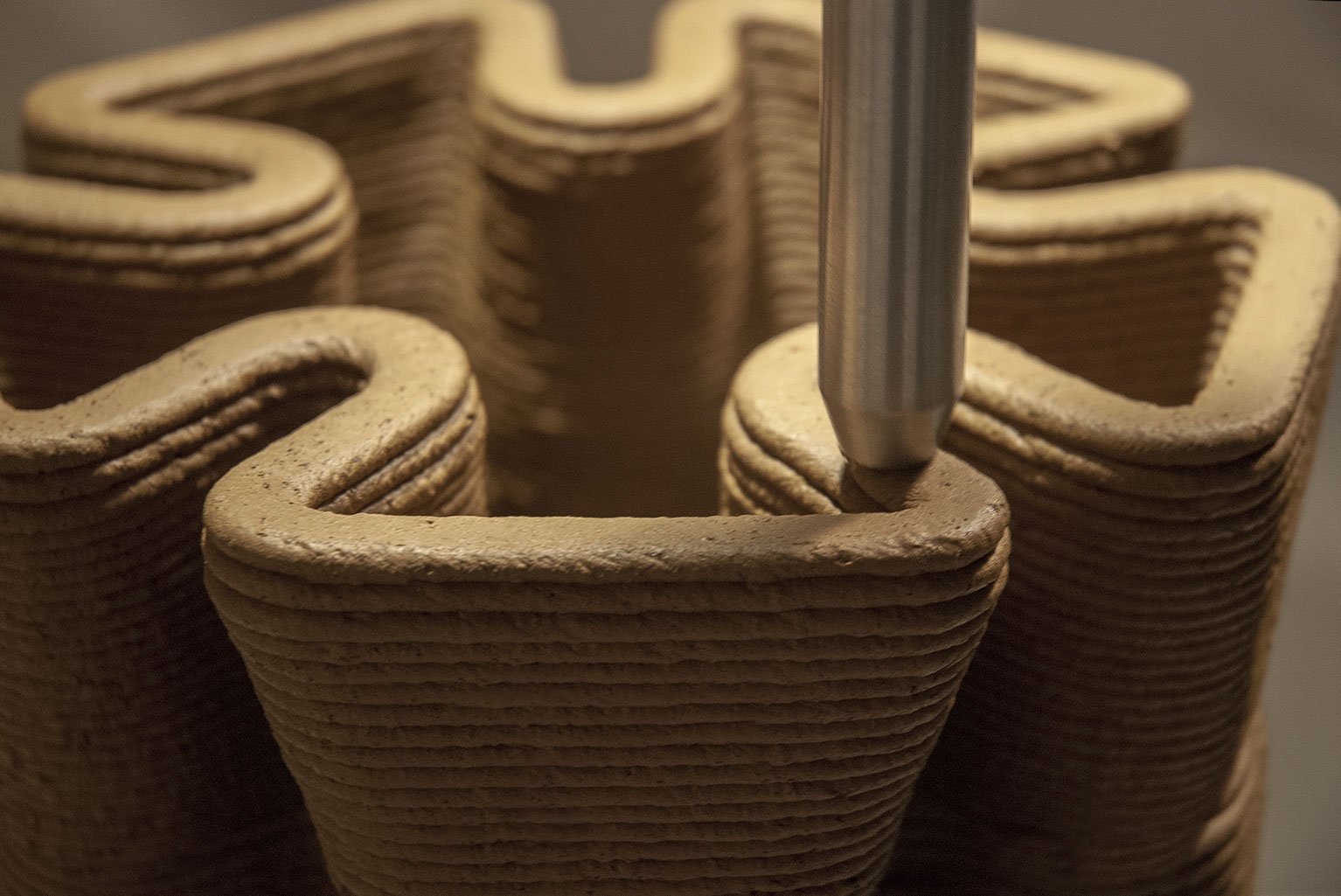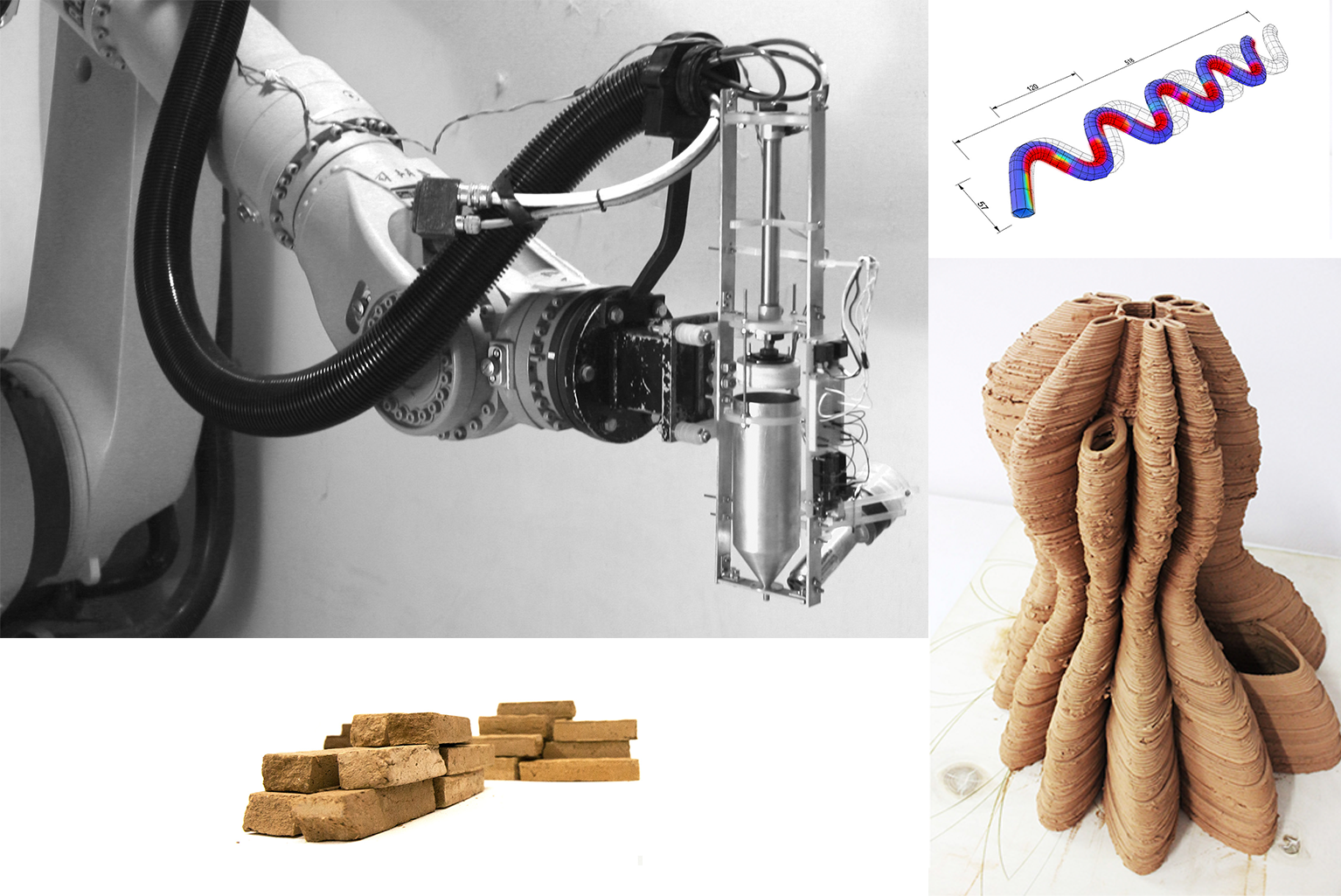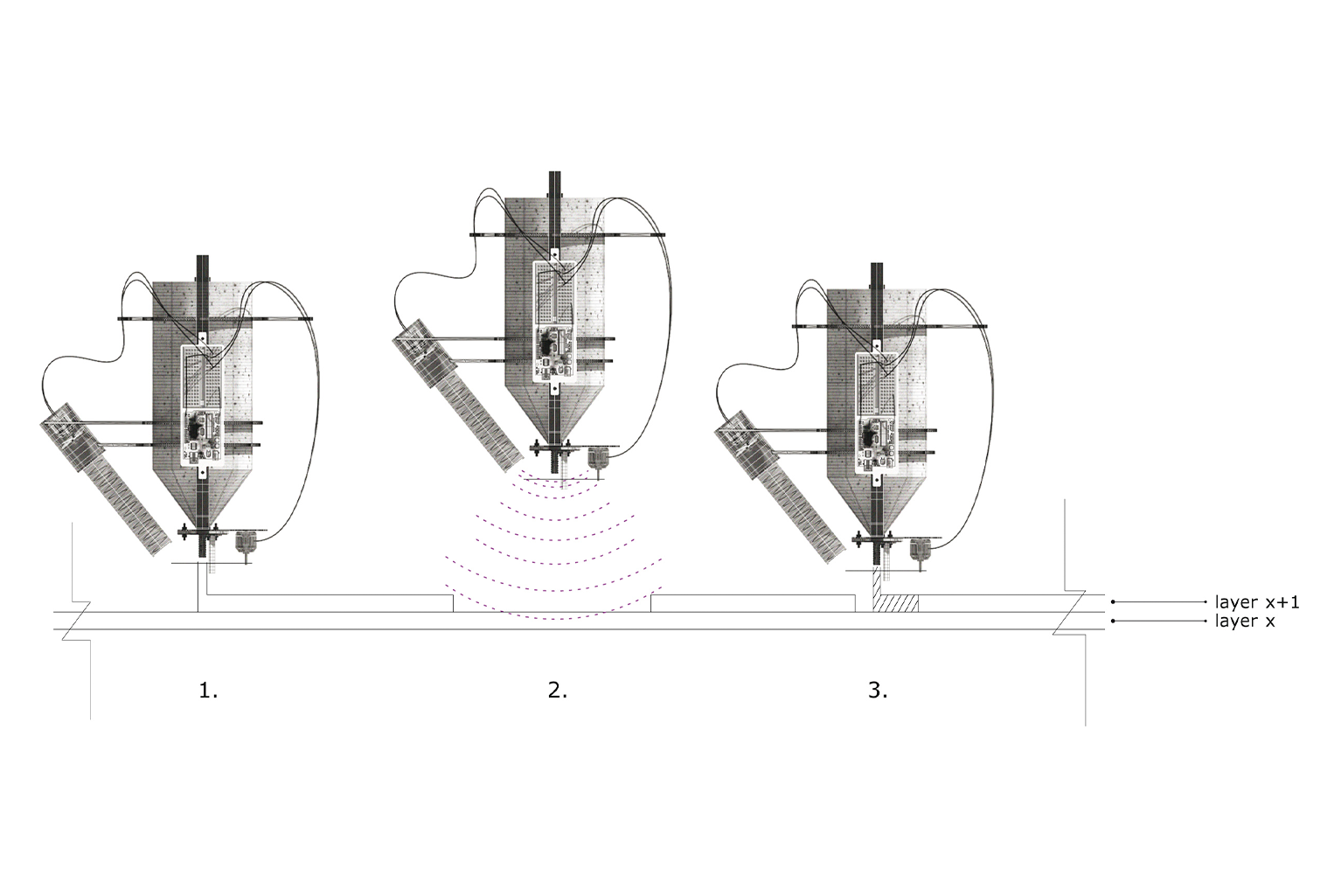2015
Pylos
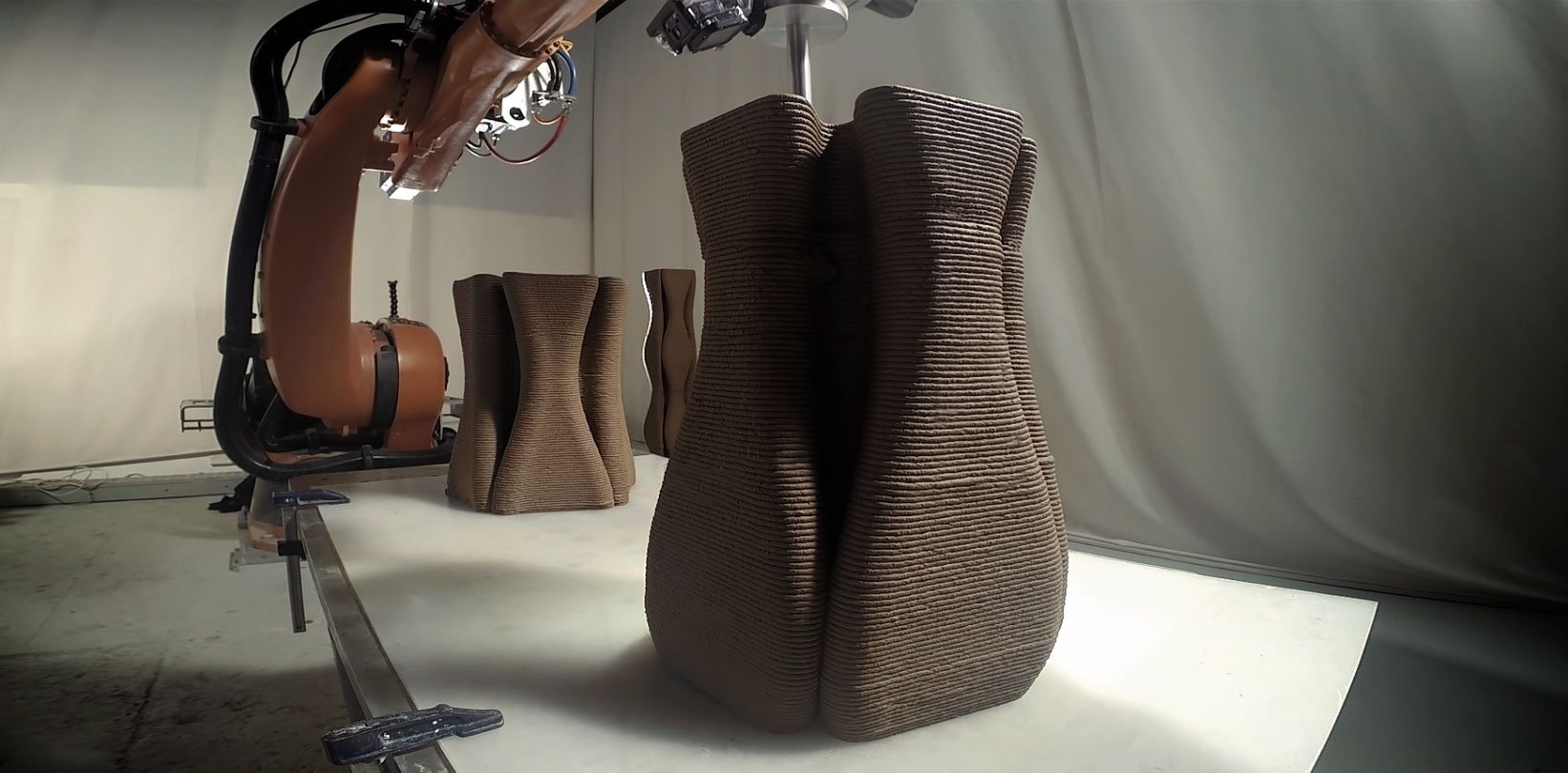
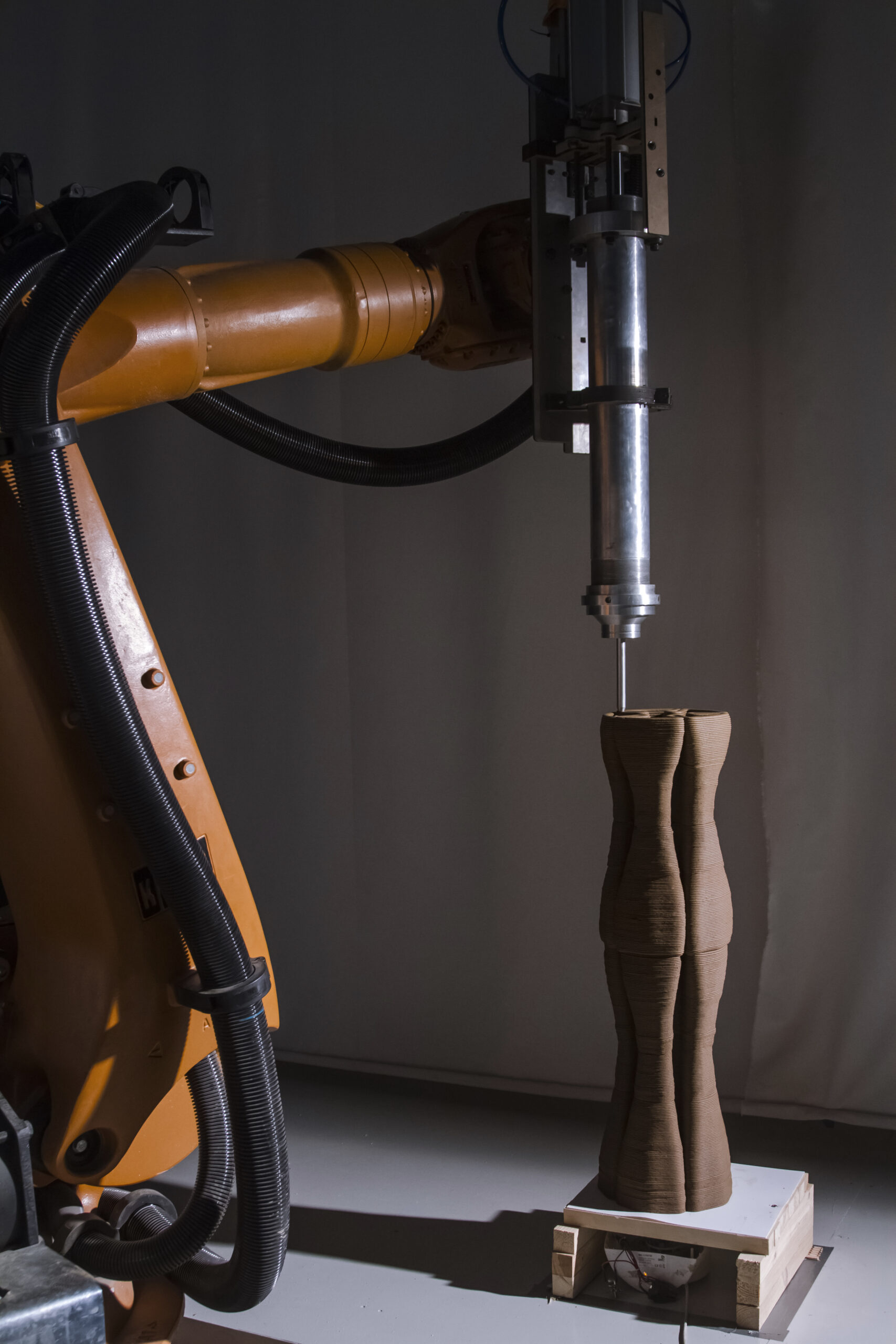
The project places a specific focus on the behaviour of the soil for 3D printing when it was mixed with other ingredients, towards a better understanding of the material and the potential composites. The material results obtained through the development of the first phase of this research project are extremely promising. The soil has 3 times higher tensile strength than industrial hard clay.
The importance of the material chosen for this additive manufacturing research is not related only to the unlimited existing quantity but also to decrease the emerging degree of embodied energy within the fabrication process, transportation hazards and production independent of electricity, fuel availability and greenhouse effects.
The project is also inspired by one of the unbaked soil properties. Soil can be recycled an indefinite number of times over an extremely long period. Old dry loam can be reused after soaking in water, so loam never becomes a waste material that can harm the environment.
In a moment in which there is a boom in global population growth and urbanisation, with a high percentage of this populating living in low-quality housing conditions, it becomes imperative to push for affordable architecture and housing: low-cost quality solutions for developed and developing countries. Pylos has proven significant possibilities in terms of design variations, ensuring a sound structural quality, low energy consumption, and undeniable affordability (0.50€/kg). This project proves sustainable, low-cost, large-scale solutions for the architecture scale through the digitalisation and advancements of vernacular architecture and traditional techniques, creating a new vision for the future of the construction sector, architecture and the city.



